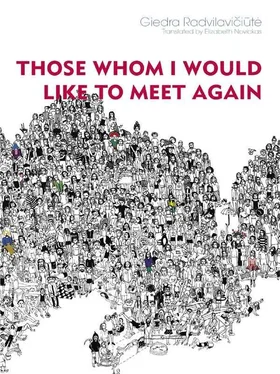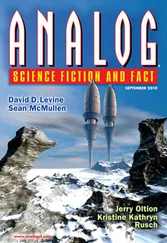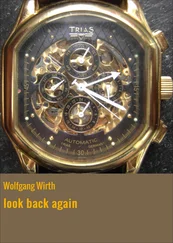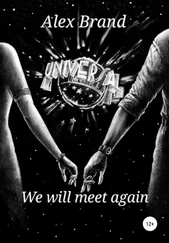You can smell seaweed before you can see the water. Returning to your room and closing your eyes, you can conjure it for some time yet, even on a dry, dusty street. After swimming through the waves for a half hour, returning to shore makes you queasy with relief. You feel like a child playing a video game: “I reached the fifth level, and I still have three lives left.” But if you don’t swim in the sea, you never feel your body. All of its positive feelings drained away by four decades of pessimism. Although in general there may be too many bodies at a resort. You could even describe resorts as places for turning souls into bodies (and shopping into fucking, forces of nature into smoked turbots, amber into medallions). The same transformation occurs on the pages of some magazines, I’ve heard. There’s a story going around about the magazine Stilius —I hope it’s not true. Apparently they had to write an article about the manager of a certain company to go along with a big ad she’d ordered. However, this manager didn’t have “beach clothes as thin as onion skins,” she didn’t “skip breakfast every day in favor of a morning run,” she hadn’t “decorated the pretty curve of her shoulder with an exotic tattoo,” and her garden pond wasn’t occupied by “a carp with golden fins.” The anxious photographer out in the provinces called the home office and said, “It’s impossible to get a decent picture out of this.” His editor reassured him, “Look, we’ll bring the manager a dress, hair, teeth, and nails. Then you’ll get your picture.” Incidentally, I once met a famous conductor and television host in Palanga. People differ from their photographs in Stilius the same way that an original differs from its forgery.
Back when I was five, I myself saw how the soul turns into a body — saw it in great detail, and from very close up. My grandfather was in a public toilet. The toilet was next to the path running to the sea, among the lilac bushes. I was waiting for him. A man was standing in the shadow of the bushes. I thought he was waiting for his woman. In a certain sense, he was. As soon as my grandfather disappeared into the toilet, the man unbuttoned his fly and, looking me right in the eye, showed me what some feminists call their childhood trauma. Then that particular body turned around and retreated down the sidewalk. As best I could, I conveyed the details of event to my grandfather when he reemerged. He, shouting “Police!” started chasing the man. Then a policeman jumped out from behind another bush (!?) stuffed the martyr of the lilacs into the cab of a garbage truck going by, and climbed in after. I don’t know what rights were granted to members of the exhibitionist minority during the Soviet years, but the policeman probably released the body in question around the next corner.
In those days, Palanga’s wooden villas were full of people, prestige, and Climat perfume. In the evenings on the pier, dressed in what was considered haute couture here (and in Czechoslovakia too), the ladies would show off a golden sunset of their own; as it happened, semi-precious stones from Egypt had just then started to come into fashion. Decent, law-abiding people, people who were a part of the Soviet system, would travel to India, Egypt, and other countries. Sometimes even entirely normal folk did too, I mean the sort of people who didn’t mind “shaking hands with their enemies.” The atmosphere of those days had somehow been miraculously preserved by the tower of the Žuv  dra Spa (now called the Feliksas). One rainy day I climbed up to the top, picked up the binoculars left on the sill, and spent a long time sailing in the open ocean along with a tiny boat in the distance.
dra Spa (now called the Feliksas). One rainy day I climbed up to the top, picked up the binoculars left on the sill, and spent a long time sailing in the open ocean along with a tiny boat in the distance.
Spending a week at even at the most ordinary of resorts nevertheless transports you into another state of being. You consciously seek this, but it comes unexpectedly, when it comes. And there’s one condition — there can’t be anything around you, neither friends nor enemies, only memory, with whom you strike up a collaboration. Then, like Prince Myshkin, you find yourself approaching down a dark lane. You feel like a roll of film, your images being developed. You’re transparent to yourself, and therefore not of interest. To passersby, you’re invisible. To acquaintances, you’re unrecognizable. An obstacle on a snail’s trail. A bowl in which to pour scents, snatches of conversation, colors. This dematerialized state should be relaxing, but for some reason it turns into strenuous work. It seems I’m watching everyone, but me, I’m only being watched by God. Those are the times I find myself really beginning to question my faith that God doesn’t, after all, exist. For example, when at twilight in the park I find a tennis ball on the path. Without explanation, without reason, without a tennis court or Nabokov. As if it had been dropped by a cosmic juggler who’d gotten bored holding onto his ball in the great beyond, tossing it from hand to hand while riding on his tiny, silver, bejeweled bicycle. (It’s only when it’s “sincerely” raining that a bicycle, leaning against a pine on shimmering moss, looks like Nobody’s.) You always find God in the details, but only when you have time. As the Americans say, “If there’s no God, who pops up the next Kleenex?” Of course, joking like that is a sin. And to pick up that tennis ball and to put it into your purse “for all time,” is a(sin)ine. There’s too much in your purse as it is. (Its most precious cargo being a small child’s note: “I love you.”)
I usually can’t remember how I get back to the city from the seaside. But this time there was an incident. Between Kaunas and Vilnius I was sitting in a roadside cafe. There was a pond visible through the window. A huge fish swam to the surface of the pond and stopped there, considering — was it better below, or up in the great beyond? A child approached the pond. With a slow shiver, the fish dived back down into the deep (surely he’d reached the fifth level and still had three lives left).
When I got home, objects were sitting about in an orderly fashion. They’d clearly been expecting me. I must have mentioned it out loud on the telephone before I left. Sometimes, when I return home unexpectedly, perhaps because I’ve left something behind, I come across objects in the most unlikely places, insolently strewn about the room, and there’s a peculiar smell in the air, as though they’d thrown an orgy and I’d caught them in the act — the fact that they had just now been up to something sinister evidenced, for example, by the crooked runner, that apple adventurously balanced on the edge of the table, and the graying cornflower petals fallen on the cake (besides which, ten minutes earlier, I had, I believe, left somewhat more cake behind than is awaiting me on my return).
At home I emptied my purse. I poured the sand out of it and put back the pencils I’d need for work tomorrow. I fed the pregnant neighborhood cat, who is expecting kittens by her son from last year. I made some coffee and sat down to a week’s worth of unread newspapers.
… Six ministers have been forced to resign. The premier refused to step down. Then he stepped down. The candidate for his office traveled to Moscow to celebrate an acquaintance’s seventieth birthday. Secretly. Before noon, he lied about it. After noon it became clear that he had lied. He had gone because of “a matter of grave national interest.” One member of our parliament offered to shoot all the others. Bush let Putin know he would have to reconcile himself to NATO’s boundaries coming nearer still. The Hague Tribunal welcomed Miloševi  into his new jail cell most hospitably. “Crumbs of party coalitions were left on the country’s political table.” But the Dalai Lama arrived for a visit on Saturday, and praised the great strides taken by free Lithuania.
into his new jail cell most hospitably. “Crumbs of party coalitions were left on the country’s political table.” But the Dalai Lama arrived for a visit on Saturday, and praised the great strides taken by free Lithuania.
Читать дальше

 dra Spa (now called the Feliksas). One rainy day I climbed up to the top, picked up the binoculars left on the sill, and spent a long time sailing in the open ocean along with a tiny boat in the distance.
dra Spa (now called the Feliksas). One rainy day I climbed up to the top, picked up the binoculars left on the sill, and spent a long time sailing in the open ocean along with a tiny boat in the distance. into his new jail cell most hospitably. “Crumbs of party coalitions were left on the country’s political table.” But the Dalai Lama arrived for a visit on Saturday, and praised the great strides taken by free Lithuania.
into his new jail cell most hospitably. “Crumbs of party coalitions were left on the country’s political table.” But the Dalai Lama arrived for a visit on Saturday, and praised the great strides taken by free Lithuania.










